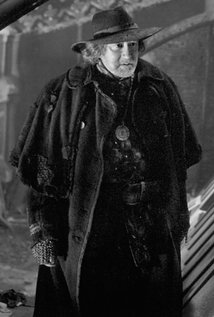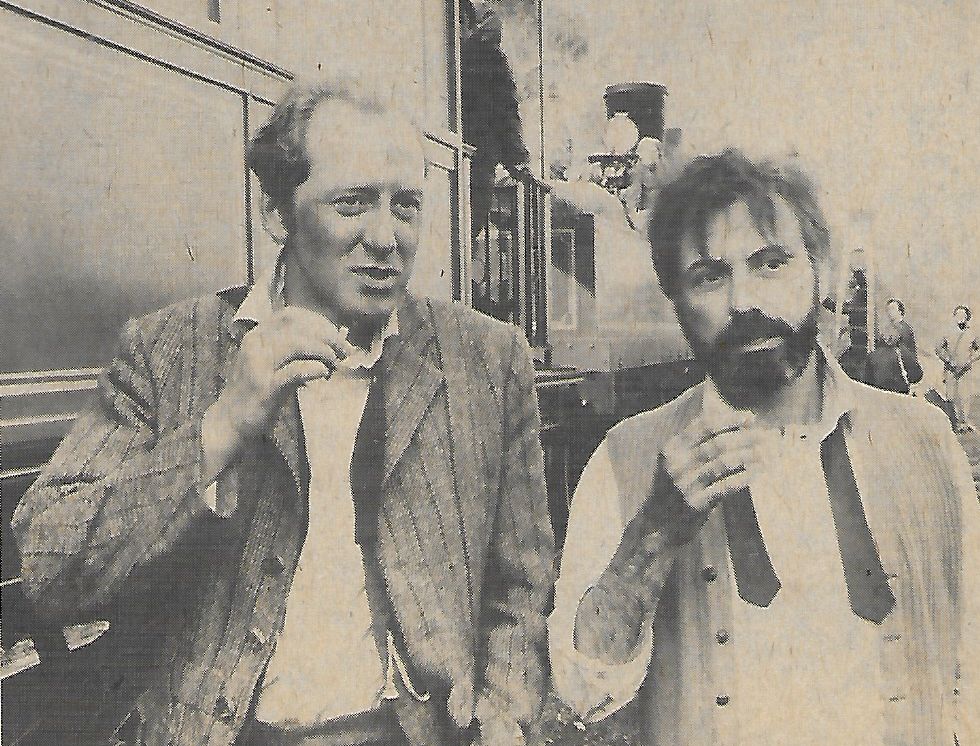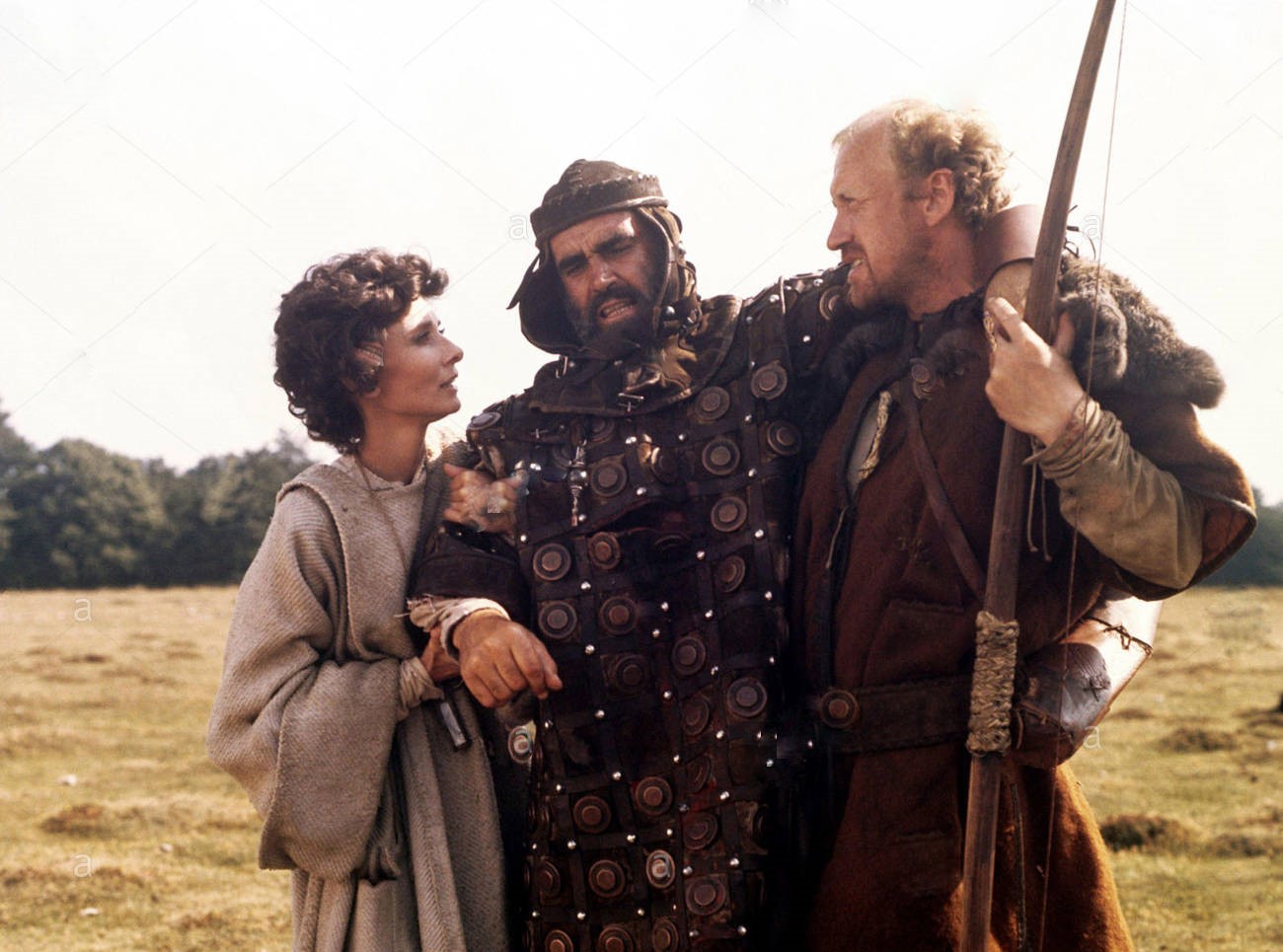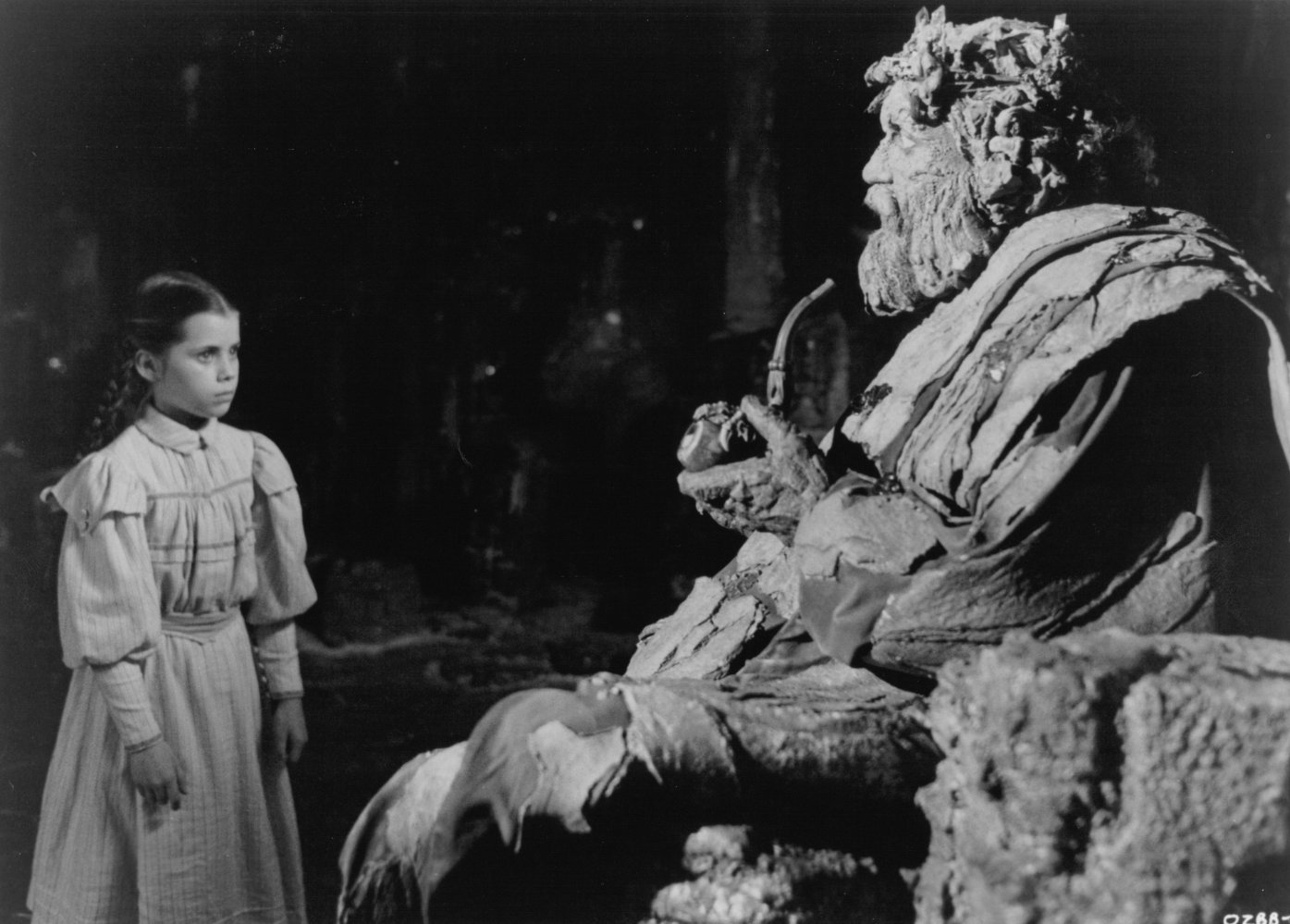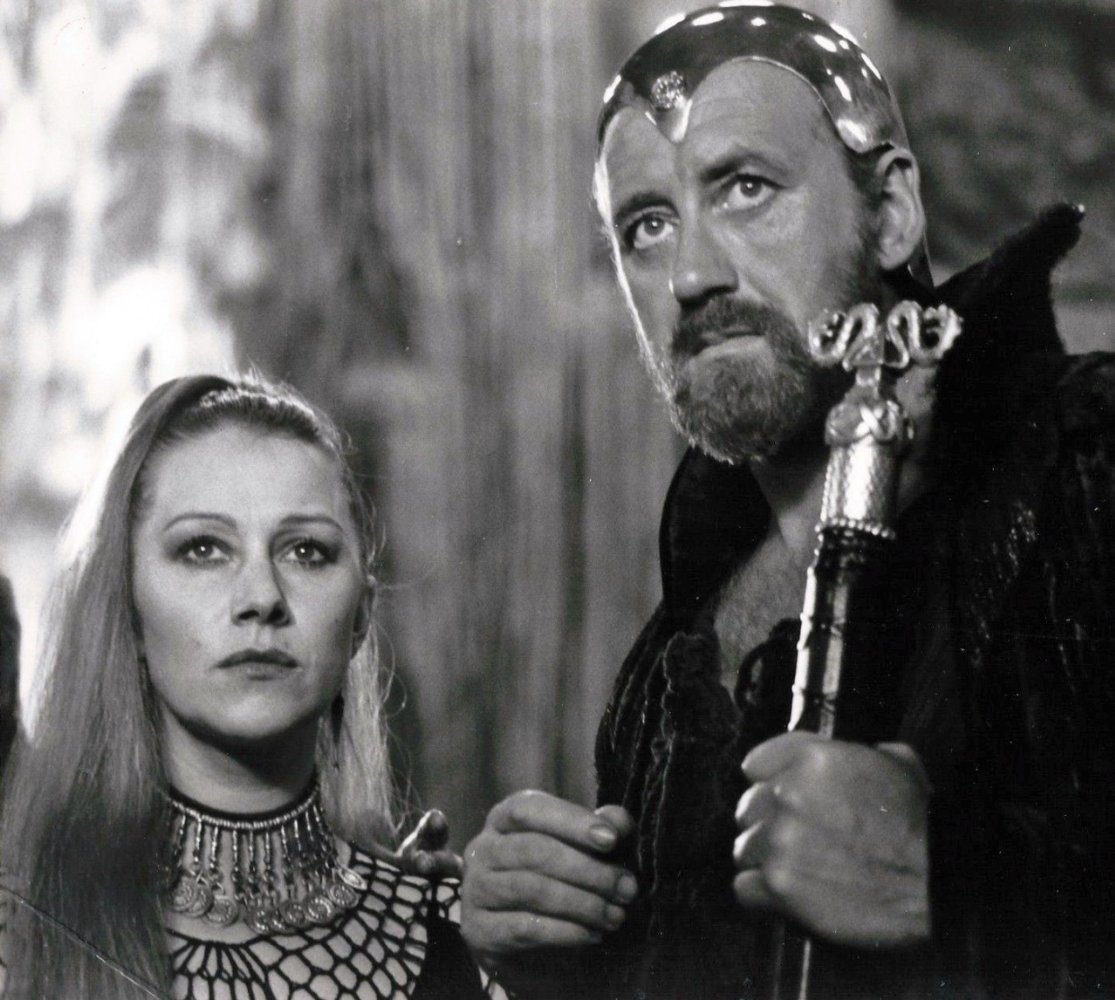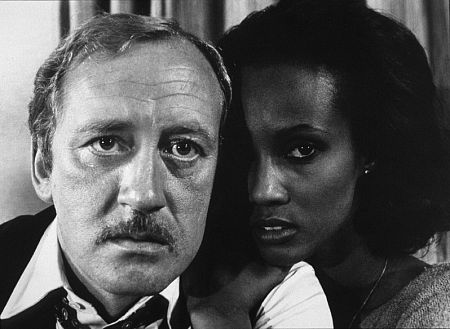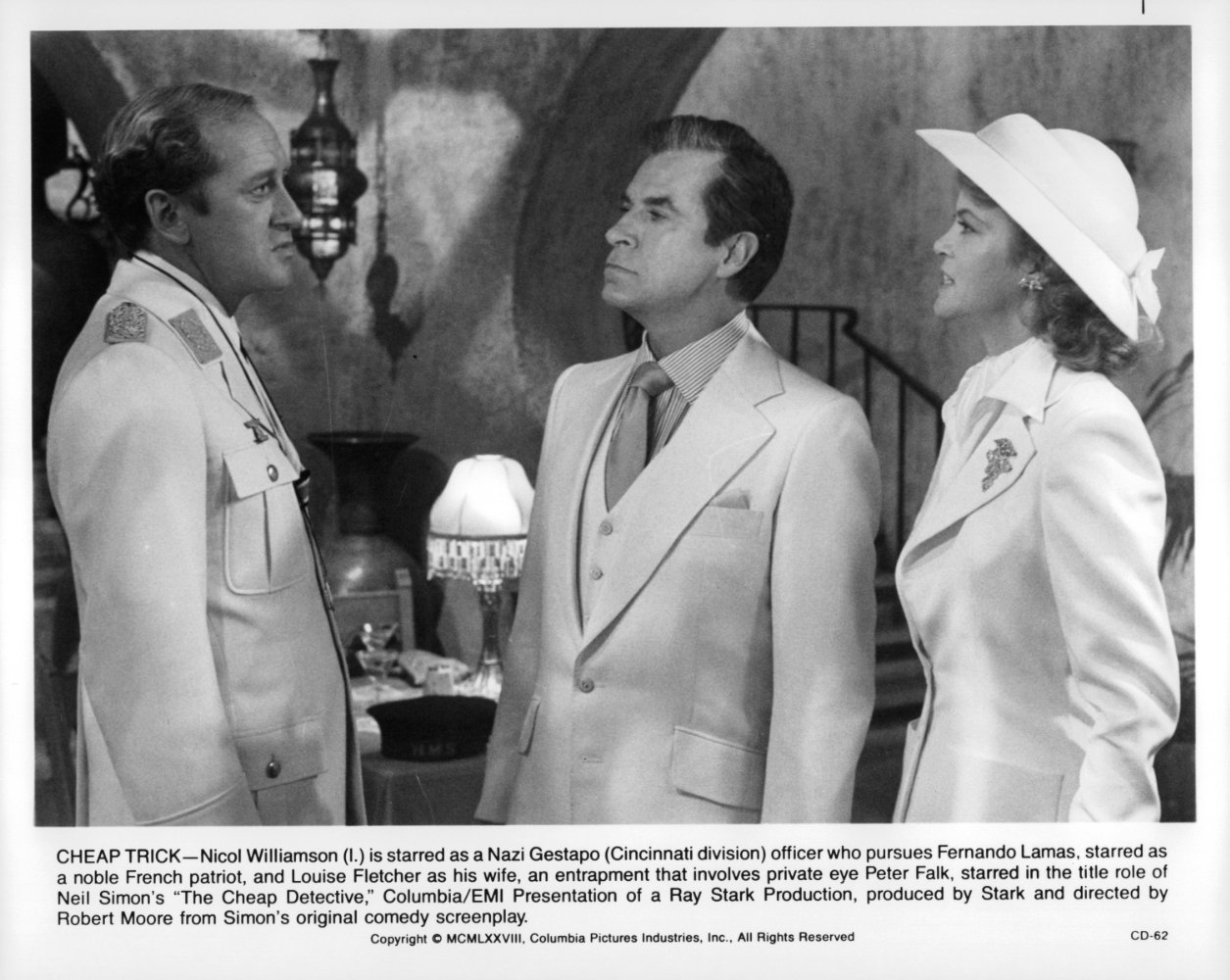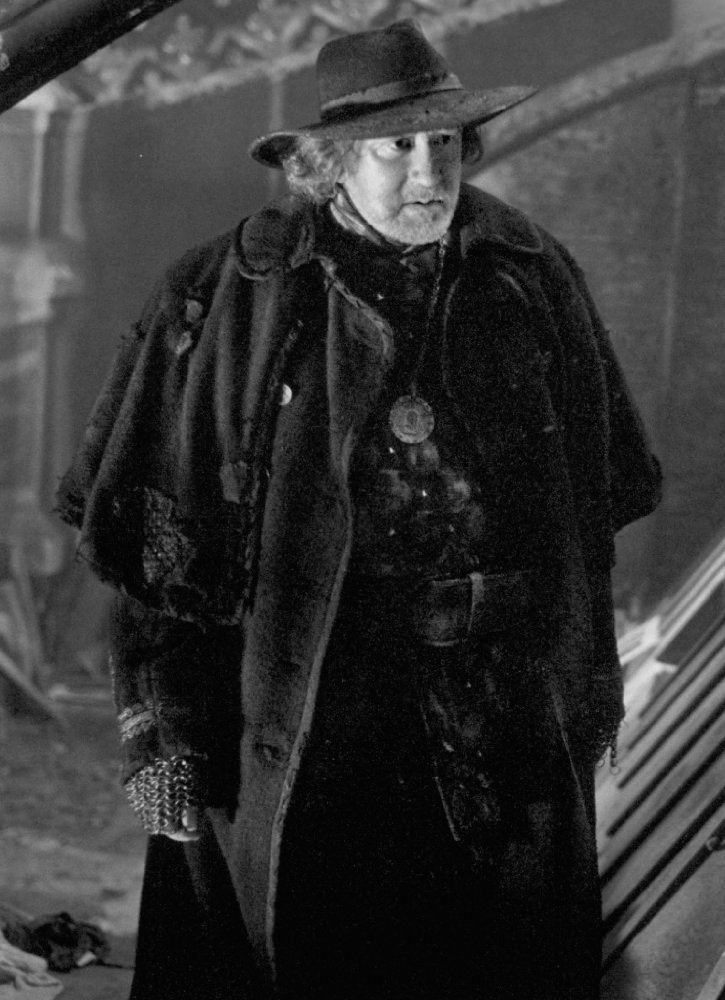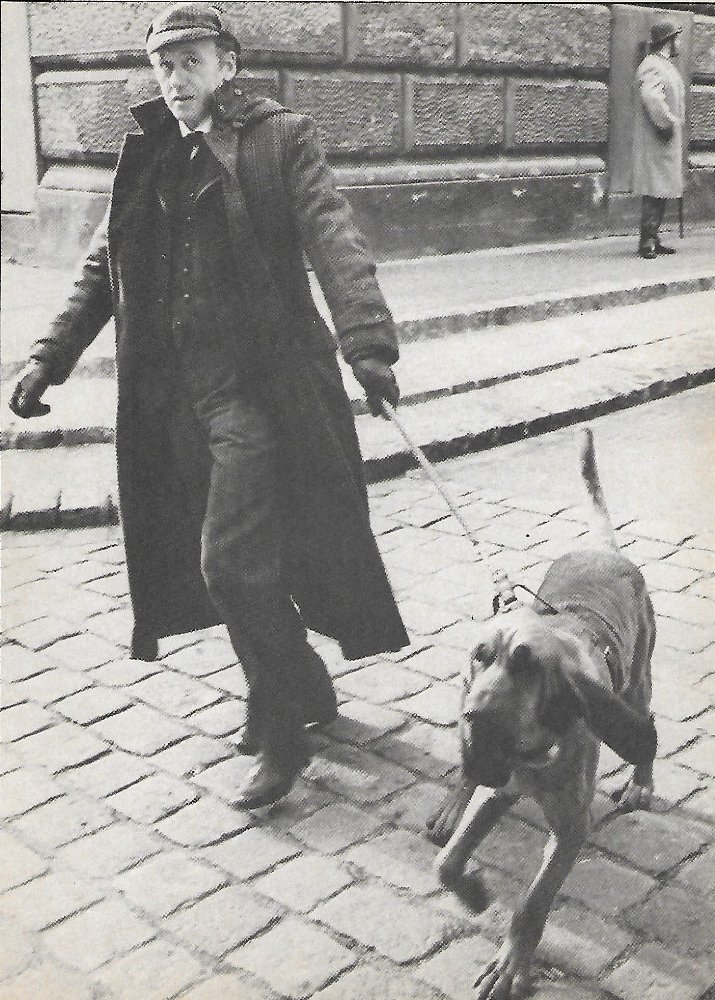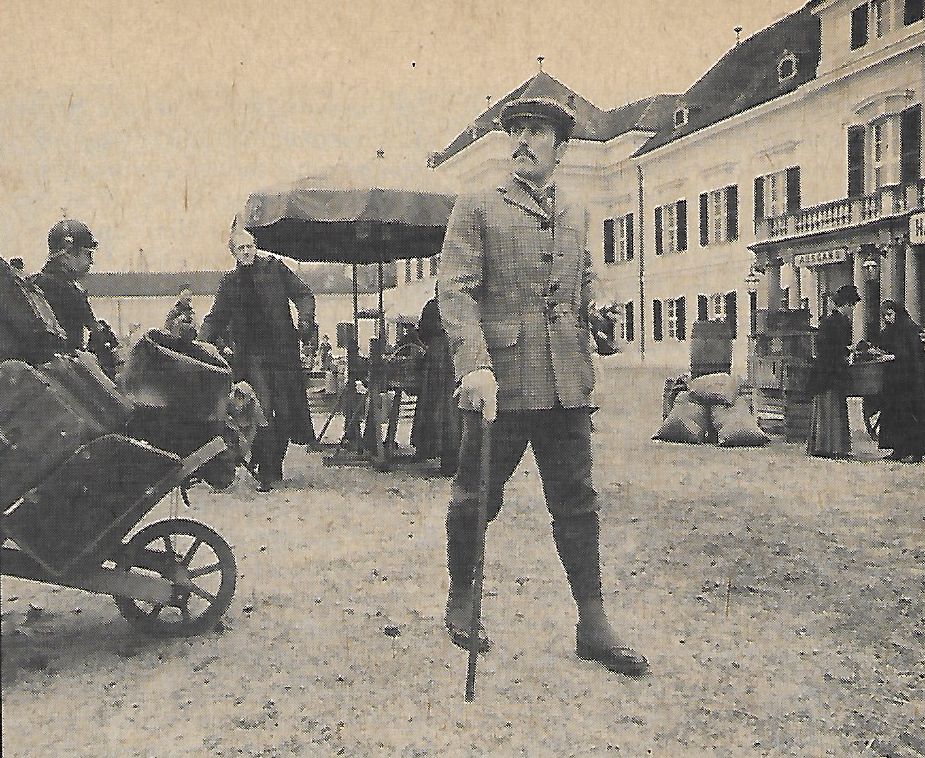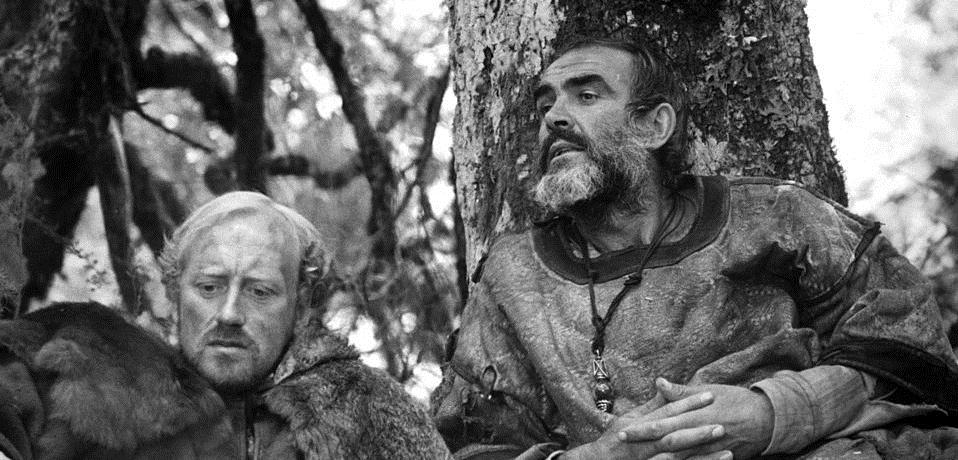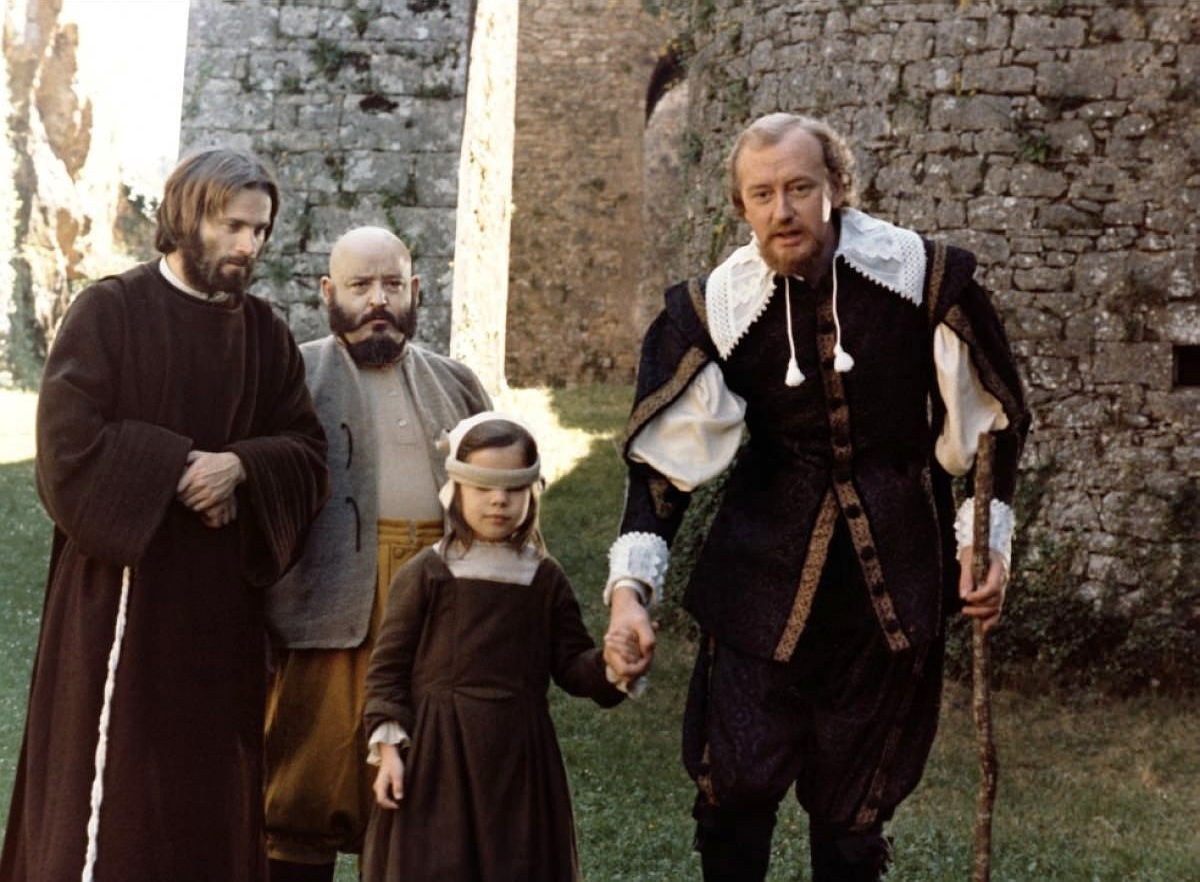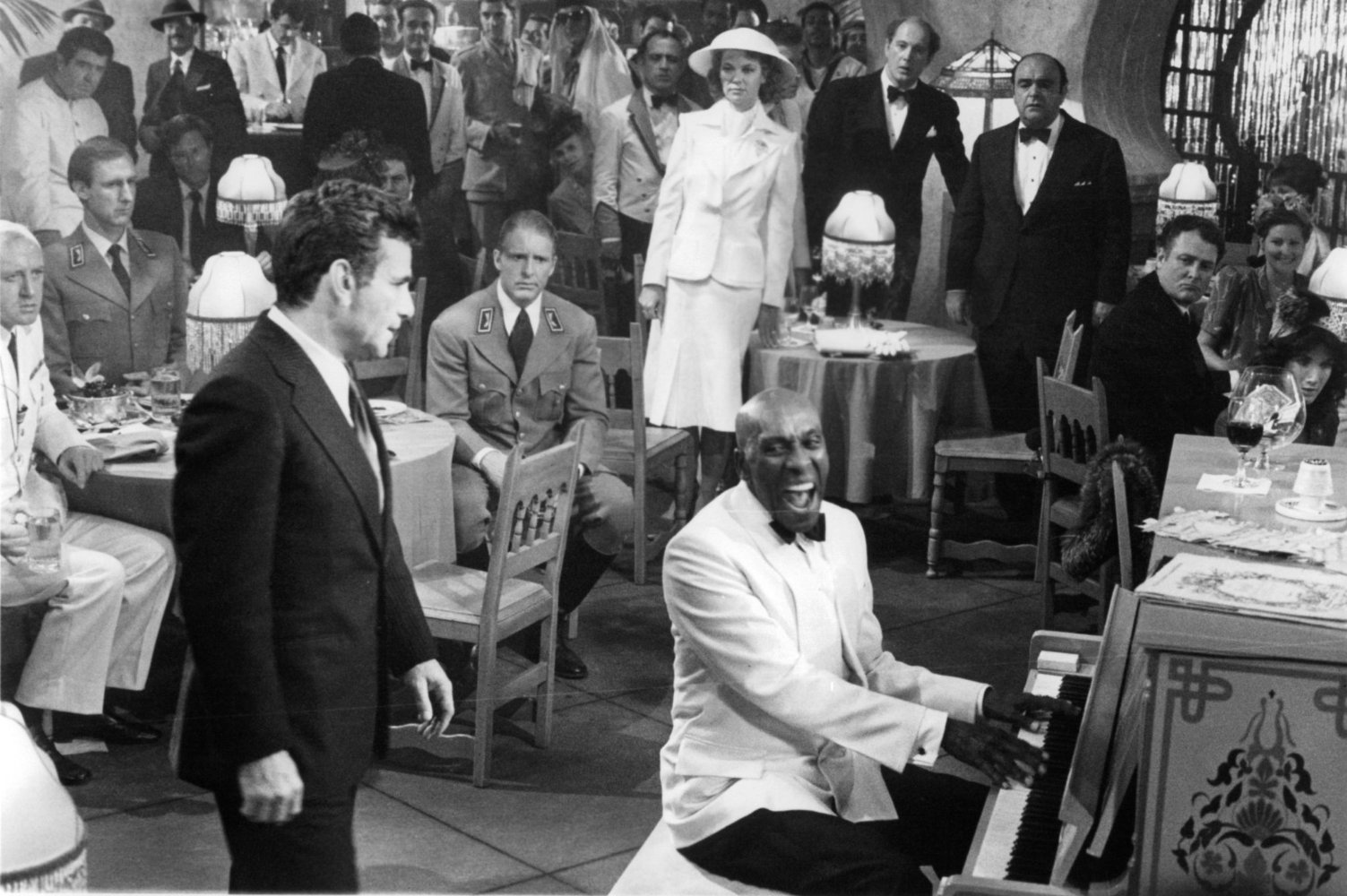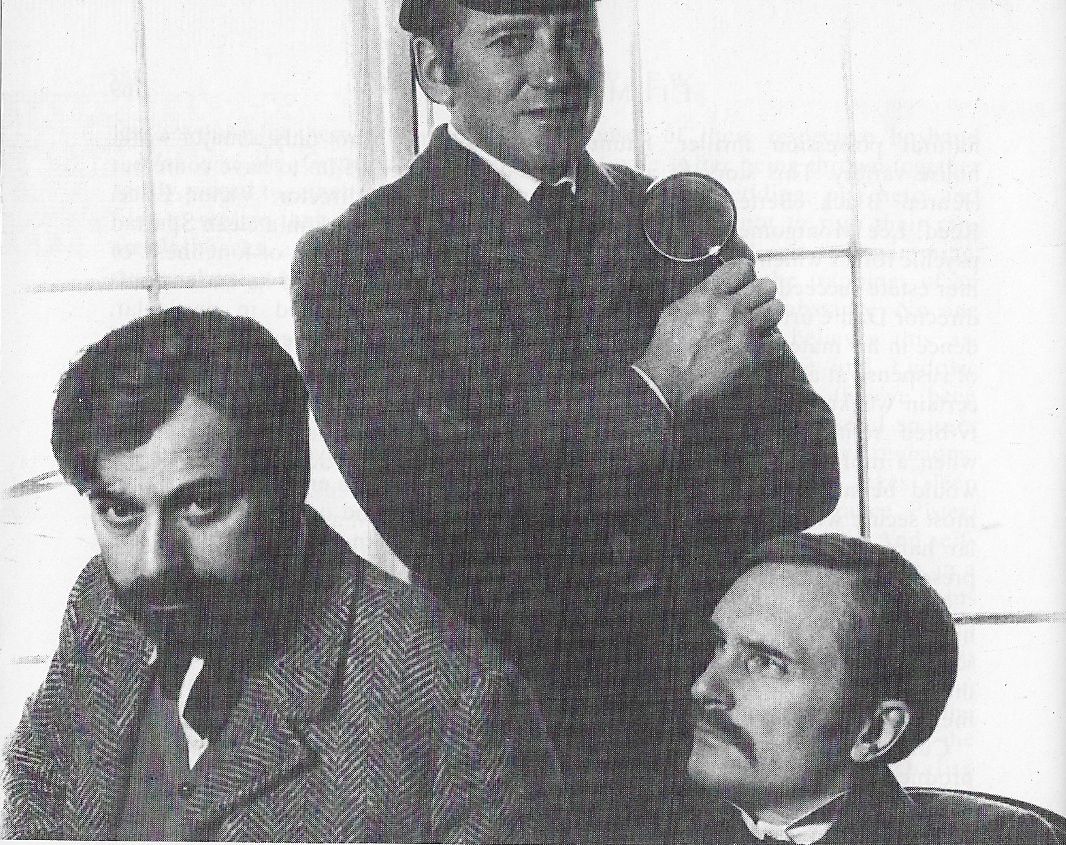Nicol Williamson was an enormously talented actor who was considered by some critics to be the finest actor of his generation in the late 1960s and the 1970s, rivaled only by Albert Finney, whom Williamson bested in the classics. Williamson's 1969 "Hamlet" at the Roundhouse Theatre was a sensation in London, considered by many to be the best limning of The Dane since the definitive 20th-century portrayal by John Gielgud, a performance in that period, rivaled in kudos only by Richard Burton's 1964 Broadway performance. In a sense, Williamson and Burton were the last two great Hamlets of the century. Finney's Hamlet was a failure, and while Derek Jacobi's turn as The Dane was widely hailed by English critics, he lacked the charisma and magnetism -- the star power -- of a Williamson or Burton.Playwright John Osborne, whose play "Inadmissible Evidence" was a star vehicle for Williamson in London's West End and on Broadway, called him "the greatest actor since Marlon Brando." While it was unlikely that Williamson could ever achieved the film reputation of Brando (who but Brando did?) or the superstar status that Burton obtained and then lost, his inability to maintain a consistent film career most likely is a result of his own well-noted eccentricities than it is from any deficiency in acting skills.The great critic and raconteur Kenneth Tynan (Laurence Olivier's first dramaturg at the National Theatre) wrote a 1971 profile of Williamson that elucidated the problem with this potentially great performer. Williamson's Hamlet had wowed Prime Minister Harold Wilson, and Wilson in turn raved about his performance to President Richard Nixon. Nixon invited Williamson to stage a one-man show at the White House, which was a success. However, in the same time period, Williamson's reputation was tarred by his erratic behavior during the North American tour of "Hamlet". In Boston he stopped during a performance and berated the audience, which led one cast member to publicly apologize to the Boston audience. Williamson would be involved in an even more famous incident on Broadway a generation later.Even before the Boston incident, Williamson had made headlines when, during the Philadelphia tryout of "Inadmissible Evidence," he struck producer David Merrick whilst defending Anthony Page. In 1976 he slapped a fellow actor during the curtain call for the Broadway musical "Rex." Fifteen years later, his co-star in the Broadway production of "I Hate Hamlet" was terrified of him after Williamson whacked the actor on his buttocks with a sword, after the actor had abandoned the choreography.A great stage actor, who also did a memorable "Macbeth" in London and on Broadway, Williamson was twice nominated for Tony Awards as Best Actor (Dramatic), in 1966 for Osborne's "Inadmissible Evidence" (a performance he recreated in the film version) and in 1974 for a revival of "Uncle Vanya." On film, Williamson was superb in many roles, such as the suicidal Irish soldier in The Bofors Gun (1968) and Tony Richardson's Hamlet (1969). He got his chance playing leads, such as Sherlock Holmes in The Seven-Per-Cent Solution (1976) and Castle in Otto Preminger's The Human Factor (1979), and was competent if not spectacular, likely diminished by deficiencies in the scripts rather than his own talent. Richardson also replaced Williamson's rival as Hamlet, Burton, in his adaptation of Vladimir Nabokov's Laughter in the Dark (1969).It was in supporting work that he excelled in film in the 1970s and 1980s. He was quite effective as a supporting actor, such as his Little John to Sean Connery's Robin Hood in Richard Lester's Robin and Marian (1976), was brilliant in I'm Dancing as Fast as I Can (1982) and gave a performance for the ages (albeit in the scenery-chewing category as Merlin) in Excalibur (1981). His Merlin lives on as one of the most enjoyable performances ever caught on film.Then it was over. While the film work didn't dry up, it didn't reach the heights anymore. He failed to harness that enormous talent and convert it into memorable film performances. He did good work as Louis Mountbatten in a 1986 TV-movie, but the roles became more sporadic, and after 1997 this great actor no longer appeared in motion pictures.Williamson's eccentricities showed themselves again in the early 1990s. When appearing as the ghost of John Barrymore in the 1991 Broadway production of Paul Rudnick's "I Hate Hamlet" on Broadway in 1991, Williamson's co-star quit the play after being thumped on the buttocks with a sword during a stage fight. Although critics hailed the performances of the understudy as a "vast improvement" it caused a sensation in the press. Despite good reviews, the play lasted only 100 performances.Surprisingly, Williamson never won an Oscar nomination, yet that never was a game he seemed to play. In 1970, after his Hamlet triumph, he turned down a six-figure salary to appear as Enobarbus in Charlton Heston's film of Shakespeare's Antony and Cleopatra (1972)_. The role was played by Eric Porter, but his choice was justified in that the film was derided as a vanity production and savaged by critics).Williamson had been a staple on Broadway, even using his fine singing voice to appear as Henry VIII in the Broadway musical "Rex" In 1976. He has not appeared on the Great White Way since his own one-man show about John Barrymore that he himself crafted, "Jack: A Night on the Town with John Barrymore," which had enormously successful runs, both at the Criterion Theater in London, and The Geffen Theater in Los Angeles playing to packed houses, before closing on Broadway after only 12 performances in 1996.The "I Hate Hamlet" and "Jack" shows are still talked about on Broadway. Williamson has joined the ranks of Barrymore, Burton, and Brando, in that they have become phantoms who haunt the theater and film that they they served so admirably on the one hand but failed on the other. All enormously gifted artists, perhaps possessed of genius, they were discombobulated by that gift that became their curse, the burden of dreams -- the dreams of their audiences, their collaborators, their critics. While there is a wistfulness over the loss of such greatness, there is a relief offered, not so much from a moral tale, but as a release from guilt for the run-of-the-mill artists lacking such genius. One can be comforted by the fact that while one lacks the pearl of such a talent, they also lack the irritating genius that engenders that pearl.
Show less «

